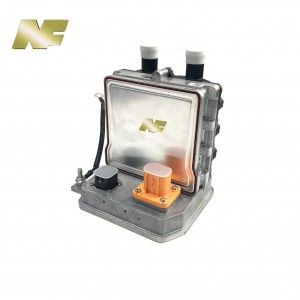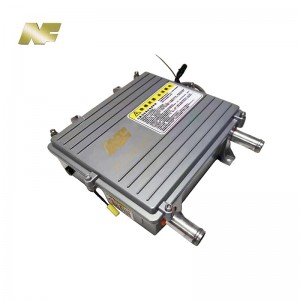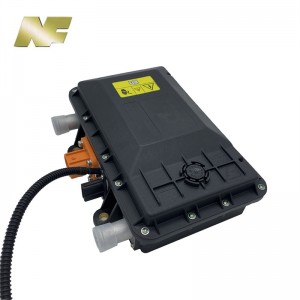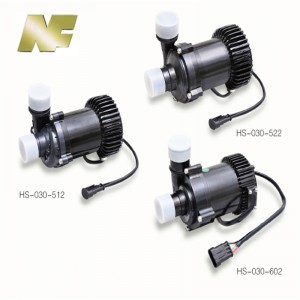In a world where environmental concerns have become paramount, manufacturers are turning their attention to more sustainable shipping options. As a result, the automotive industry is rapidly transitioning to electric vehicles (EVs) and hybrid models. These eco-friendly vehicles are not only good for the environment but also help reduce dependence on fossil fuels. However, the transition to electricity also brings various challenges, especially heating systems in cold weather. To solve this problem, automotive engineers have developed innovative solutions such as high-pressure coolant heaters, PTC coolant heaters and electric water pumps to provide efficient and sustainable heating for electric vehicles.
One of the biggest concerns for car owners, especially in the winter, is the ability to heat the vehicle without compromising energy efficiency. The solution to this challenge is the advent of high-pressure coolant heaters. HV stands for High Voltage and refers to the amount of electricity required to heat the vehicle's coolant. Unlike traditional internal combustion engines, which use waste heat to heat the cabin, electric and hybrid vehicles require alternative methods. A high-pressure coolant heater uses energy from the vehicle's battery pack to heat the coolant, which then circulates through the heating system. This ensures a comfortable cabin temperature without draining the vehicle's overall battery power.
Another innovative option in this area is the PTC coolant heater. PTC stands for Positive Temperature Coefficient and refers to the unique heating element built into these heaters. One of the many benefits of a PTC coolant heater is its self-regulating nature. Unlike traditional resistance heaters, PTC elements automatically adjust power output based on ambient temperature. This self-regulation allows for a consistent and efficient heating process, preventing any unnecessary wastage of electricity. In addition, PTC coolant heaters are compact and lightweight, making them ideal for electric vehicles where space optimization is crucial.
In addition to these advanced heating technologies, electric water pumps are gaining attention for their role in improving overall vehicle efficiency. Traditional mechanical water pumps used in internal combustion engines consume a large amount of the engine's power, resulting in reduced fuel efficiency. An electric water pump, on the other hand, can run independently of the engine, allowing for greater control over coolant flow and temperature regulation. By reducing reliance on engine power, electric water pumps help reduce energy consumption and increase driving range, further enhancing the appeal of electric and hybrid vehicles.
The combination of HV coolant heater, PTC coolant heater and electric water pump provides a comprehensive and environmentally friendly solution for electric vehicle heating. While the main goal is to ensure a comfortable cabin temperature, these technologies also provide a number of additional benefits. By using HV coolant heaters and PTC coolant heaters, electricity can be used efficiently and the impact on the environment can be reduced. In addition, the independent operation of the electric water pump can significantly improve the overall efficiency of the vehicle and maximize energy utilization.
As the automotive industry continues to evolve with the introduction of electric and hybrid vehicles, advancements in heating systems have become critical. HV coolant heaters, PTC coolant heaters and electric water pumps exemplify engineers' commitment to creating sustainable, efficient solutions. These technologies not only provide comfortable heating during the colder seasons but also help reduce CO2 emissions and overall environmental footprint. As the world moves towards a greener future, these developments in car heating systems are an important step in the right direction.




Post time: Sep-14-2023




